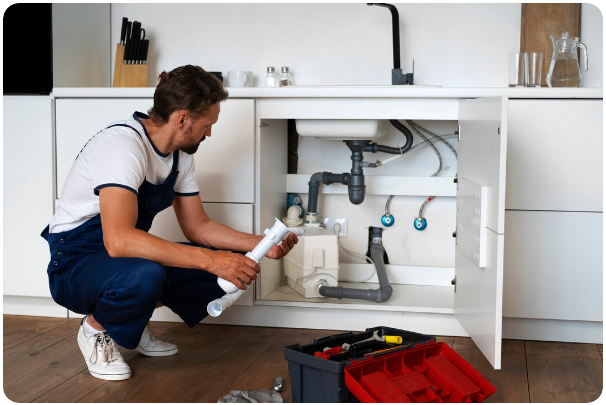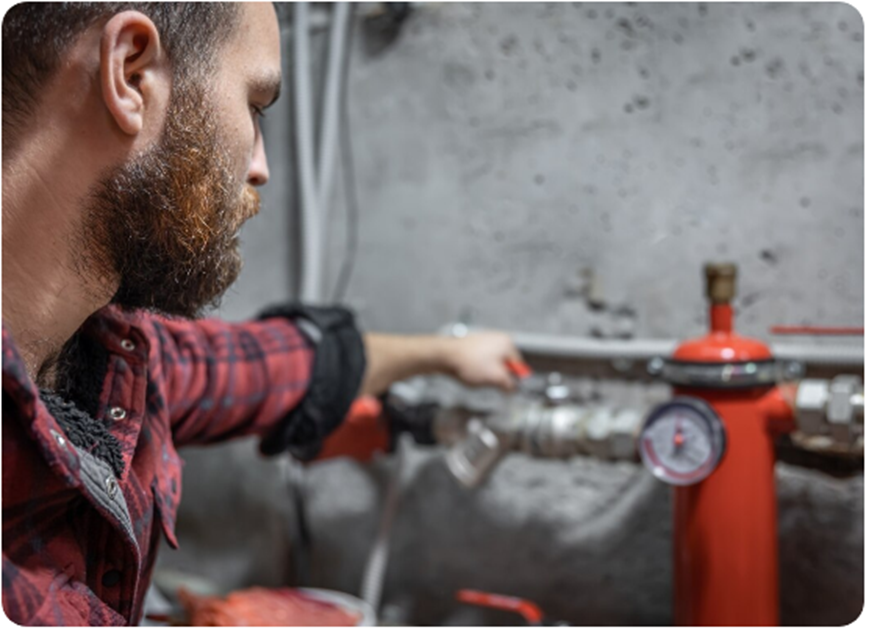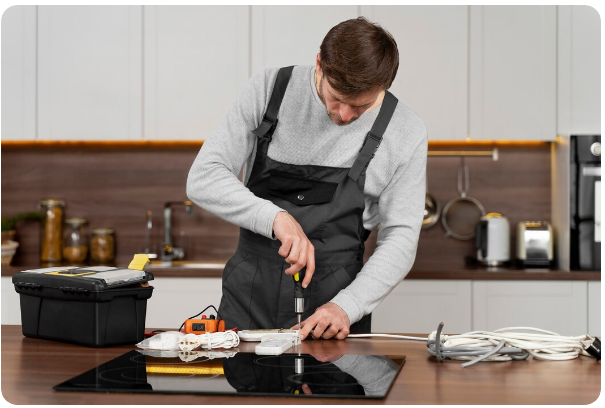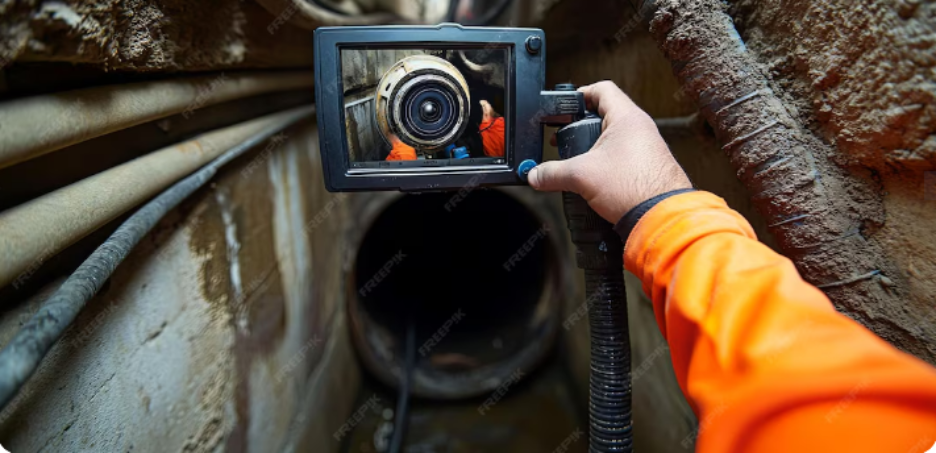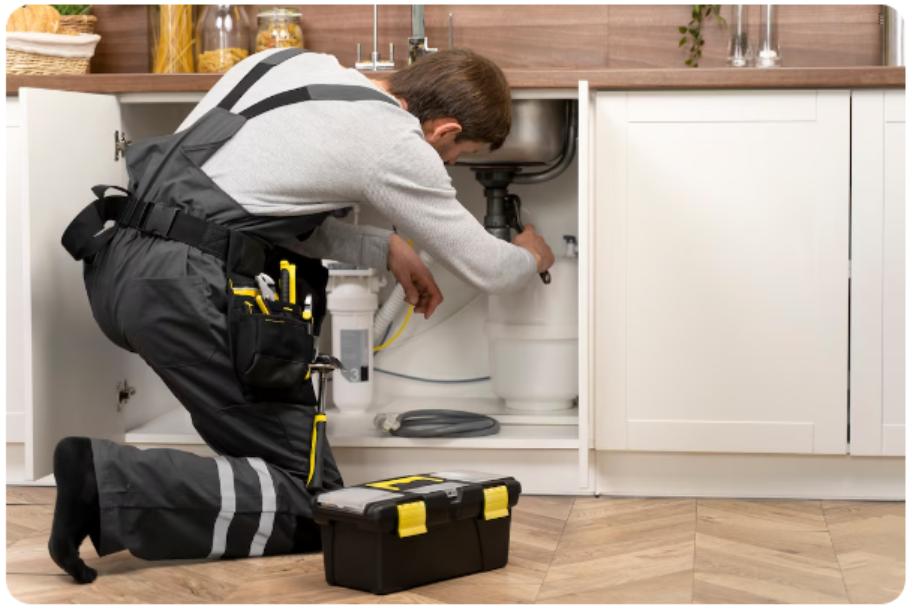What’s Blocking Your Drains? Common Causes Explained
A blocked drain is one of those household or business issues that always seems to happen at the most inconvenient time. Whether it’s a sink that refuses to empty, a toilet that won’t flush properly, or a floor drain that leaves you standing in water, the frustration is immediate. Beyond the inconvenience, drain blockages can cause unpleasant odours, health hazards, and even long-term damage to plumbing systems if ignored. Understanding what causes blocked drains is the first step to preventing them and knowing when it’s time to call in a professional plumber.
Below, we’ll examine the most common culprits behind drainage problems, why they occur, and how addressing them early can prevent bigger headaches later.
Grease & Food Waste Build-Up
Kitchen sinks are particularly prone to blockages caused by grease, fat, and food particles. Even if you rinse greasy pans with hot water, the fats eventually cool and solidify inside your pipes, creating sticky deposits that attract more debris.
Typical signs of grease-related blockages:
- Water draining slowly after cooking or dishwashing
- Gurgling sounds as food scraps attempt to pass through
- Persistent foul smells coming from the sink
While many assume that hot water or household drain cleaners will do the trick, these usually only provide short-term relief. Professional cleaning is the only reliable fix once the grease hardens along the pipe walls.
Hair & Soap Scum in Bathrooms
Bathrooms experience a different type of blockage. Hair and soap scum form clumps that cling to the inner surfaces of pipes, particularly in showers and bathroom sinks. Over time, this build-up narrows the pipe opening and prevents water from flowing freely.
Warning signs include:
- Shower water pooling around your feet
- Slow-draining bathroom basins
- A noticeable soapy residue or film around drains
A plumber can use specialised equipment to clear these clogs completely, something regular plunging or drain cleaners rarely achieve effectively.
Tree Root Intrusion
Tree roots are one of the most damaging causes of blocked drains, especially for properties with older plumbing systems. Roots are naturally drawn to the moisture in underground pipes. Once they find a crack or loose joint, they grow inside, eventually creating a dense web that blocks water flow entirely.
Why tree roots are such a concern:
- They can cause ongoing blockages that return even after temporary clearing
- Pipe walls may crack or collapse under pressure
- Root systems are difficult to remove without specialist tools
Plumbers often rely on CCTV drain inspections to confirm root intrusion. This allows them to assess the extent of the problem and recommend cutting the roots out or replacing pipe sections.
Foreign Objects & Everyday Items
It’s surprising how many non-flushable items end up down toilets and drains. Wet wipes, sanitary products, cotton buds, nappies, and excess toilet paper are frequent offenders. Unlike toilet paper, many of these items don’t break down in water, meaning they can quickly lodge in bends and junctions of your pipework.
Common household mistakes that lead to blockages:
- Flushing wipes labelled as “flushable” (they often aren’t)
- Using toilets as rubbish bins for hygiene products
- Excessive toilet paper use, especially during illness
A plumber can dislodge these items using high-pressure jetting equipment or mechanical augers, restoring full flow without damaging the pipes.
Pipe Damage & Structural Issues
Sometimes, the problem isn’t what you put down the drain, but the pipes' condition. Older plumbing networks can develop cracks, sagging sections, or complete collapses over time. These issues not only cause blockages but can also lead to leaks and costly property damage.
Common causes of damaged pipes include:
- Soil movement or ground subsidence around your property
- Corrosion in metal pipes
- Heavy vehicle traffic over shallow pipe networks
Bathroom Products & Personal Care Waste
Beyond hair and soap, many people unknowingly dispose of bathroom products that don’t break down in drains. Items such as dental floss, cotton pads, and tissues behave like wet wipes—tangling together and creating stubborn clogs. Even thick shampoos, shaving foam, and bath oils can build up in pipes if used excessively.
How to prevent these blockages:
- Place a small bin in the bathroom for disposal of personal care items
- Use drain covers to catch hair and larger particles
- Limit the use of oil-based bath products
By reducing what goes down the drain, you lessen the chances of a blockage forming.
Garden Debris & Outdoor Drains
Outdoor drains can be just as problematic as indoor ones. Leaves, dirt, mulch, and grass clippings often wash into stormwater drains, especially after rain. Once this debris builds up, water flow is restricted, leading to flooding around patios, driveways, or garden beds.
Signs your outdoor drains may be blocked:
- Puddles forming around drain grates after light rain
- Water backing up into the garden beds
- Strong, earthy odours coming from the drainage system
Scale Build-up & Mineral Deposits
In areas with hard water, mineral deposits such as calcium and magnesium can build up inside pipes. Over time, this scale reduces the pipe's internal diameter, slowing water flow and increasing the likelihood of other materials getting trapped.
Indicators of scale build-up include:
- Reduced water pressure at taps and showers
- Chalky residue around fixtures and drains
- Persistent slow drainage despite no obvious blockage
Pipe descaling by a plumber can restore flow and prevent long-term issues caused by corrosion and narrowing.
Why Professional Help is Essential
While DIY remedies may seem appealing, they rarely address the root cause of a blocked drain. Store-bought drain cleaners can damage pipes, while plungers only temporarily shift small clogs. Professional plumbers, on the other hand, bring expertise and the right tools to the job.
Methods plumbers use to clear blockages include:
- CCTV inspections to identify the exact cause and location of a clog
- High-pressure water jetting to clear stubborn blockages and flush out debris
- Mechanical augers for cutting through tougher obstructions
- Pipe relining or replacement where damage is extensive
Timely intervention prevents blockages from escalating into burst pipes, water damage, or even health hazards from sewage overflow.
Need Blocked Drains Fixed Fast? Contact Us Now
At Hipwell Plumbing, we understand how disruptive blocked drains can be. Our team diagnoses and resolves drainage issues quickly and effectively, using advanced tools and proven methods. Whether you’re dealing with slow-draining sinks, overflowing toilets, or persistent outdoor blockages, we’re here to help.
If you need help with blocked drains in Tweed Heads, contact us today.



